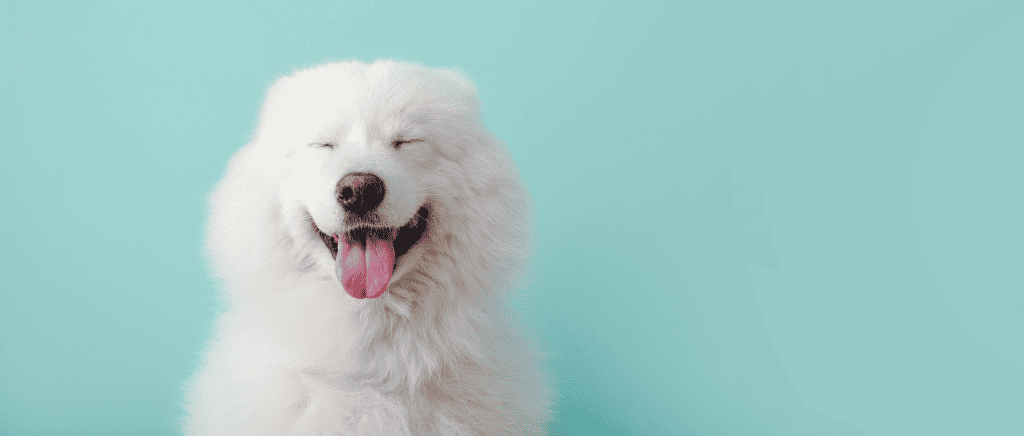Understanding Bad Breath in Dogs
At some point, we’ve all experienced bad breath, but unlike us, dogs don’t refrain from “kissing” each other at every opportunity. Bad breath in dogs is caused by the same reasons in humans. However, if your dog consistently has bad breath, known as halitosis, it’s time to pay attention.
Why Do Dogs Often Have Bad Breath?
- Oral Hygiene: A clean mouth is essential for maintaining fresh breath. Yet, it’s alarming to note that nearly 90% of dogs develop gum disease by age three. A significant number of these dogs, coincidentally, are on dry-food diets. Despite the convenience of dry dog food brands, there may be better choices for canine dental health. The absence of moisture in dry kibble fails to facilitate the natural cleaning of a dog’s teeth during the chewing process. In contrast, wet food or raw diets offer significantly more texture and moisture, potentially promoting better oral health.
- Dietary Habits: Imagine if 9 out of 10 family members had dental issues by their early twenties; your dentist would surely question your dietary habits. Our ancestors, like cave dwellers, had remarkable dental health. In humans, our dental issues arise primarily from sugar and acid consumption. For dogs, apart from not brushing daily, and contrary to the manufacturer’s claims, dry food doesn’t assist in cleaning their teeth.
- Digestive Enzymes: Dogs, being carnivores, lack amylase in their saliva – an enzyme that breaks down carbohydrates. In contrast, omnivores like us produce this enzyme in abundance, helping break down excess carbs or sugars. Regrettably, many dog foods today contain up to 50% carbs. Without amylase, these carbohydrates linger in the dog’s mouth, encouraging unwanted bacterial growth.
- Bacterial Growth and Health Impacts: As oral bacteria flourish, they form plaque, eventually solidifying into tartar. This yellow, hard layer shields the bacteria, enabling them to aggressively target the gums. This results in gingivitis, a condition where the immune system constantly battles these invaders, weakening immunity. Consequently, dogs with gingivitis and periodontal disease are more prone to heart and kidney diseases.
Despite it not being the logical choice for your dog’s dental health, about 90% of veterinarians still recommend dry kibble, cereal-based diets for our canine companions. According to a survey from the Maude Chandler webinar in early 2016 involving 300 vets, this same percentage also suggests owners should regularly brush their dog’s teeth to combat dental issues. But think about it: is daily tooth brushing the most natural or effective approach? And if it doesn’t work, the suggested alternative for your beloved dog is often an expensive dental cleaning procedure under anaesthesia, costing upwards of R4000.
Poor dental hygiene in dogs is commonly linked to a diet primarily consisting of dry kibble without the inclusion of raw meaty bones. Consider this: meaty bones act as a natural toothbrush for dogs. Refer to our dedicated article to learn about safely introducing bones into your dog’s diet.
The Bottom Line: Bad breath in dogs isn’t just “doggy breath.” It’s the outcome of harmful bacteria residing in the mouth, producing sulfur as they digest. In simpler terms, it’s like bacteria releasing gas.
Taking care of our dog’s oral health is essential not just for fresh breath but also for their overall well-being.
Introducing DentaMax: The Natural Dental Solution for Dogs
We all want the best for our furry friends, especially their health and well-being. Dental health is no exception. Maintaining their pet’s dental hygiene can be challenging for many dog owners. Tooth brushing, while effective, might only sometimes be feasible or welcomed by our canine companions. Enter DentaMax powder for dogs—a groundbreaking natural alternative to the traditional toothbrushing regimen.
Why Choose DentaMax?
- Natural Ingredients: Crafted with nature’s finest sea algae with documented benefits for improved canine dental health, DentaMax ensures your dog gets the best without artificial additives or chemicals.
- Ease of Use: Forget the struggles of trying to brush your dog’s teeth! Simply sprinkle DentaMax powder over your dog’s food. It’s a hassle-free way to incorporate dental care into their daily routine.
- Effective Dental Care: DentaMax not only helps prevent plaque build-up but also promotes healthier gums and fresh breath, ensuring a comprehensive oral care solution.
- Cost-Effective: Regular dental treatments can be costly. With DentaMax, you’re investing in prevention, potentially saving on hefty dental bills in the future.
- Loved by Dogs: No more wrestling with toothbrushes! DentaMax is taste-friendly, making it a hit even with the pickiest eaters.
Conclusion:
Dental health is paramount for our pets. DentaMax powder offers a natural, effective, and hassle-free alternative to conventional tooth brushing, making it easier than ever to ensure your dog’s teeth and gums remain in top condition. Switch to DentaMax and witness the transformation in your dog’s oral health and daily vitality.

